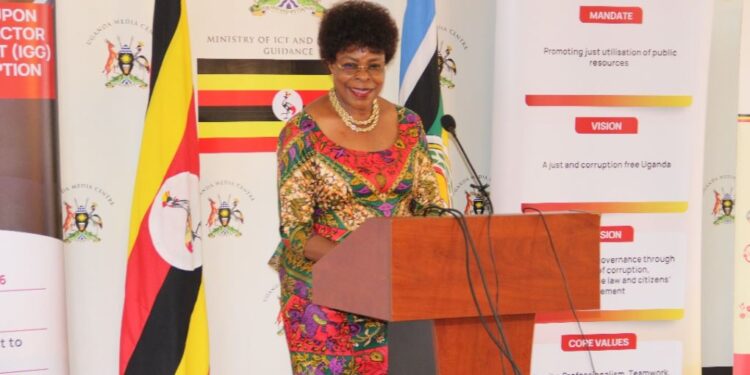A new government report has revealed shocking levels of corruption in Uganda’s public service, showing that more than 130,000 civil servants—about 35% of the workforce—paid bribes to secure their jobs.
The report, released on Monday by the Inspectorate of Government (IGG) in partnership with the Economic Policy Research Centre at Makerere University, reviewed recruitment by District Service Commissions (DSCs) between 2018 and 2022.
According to the findings, job seekers paid between UGX 3 million and UGX 50 million (about $800 to $13,500) to get employed. The total amount of bribes requested during this period is estimated at UGX 78 billion ($21 million), while actual payments reached UGX 29 billion ($7.8 million).
Inspector General of Government Beti Kamya warned that the corruption has resulted in unqualified individuals occupying critical positions.
“Many of those who bribed for jobs don’t have the required qualifications,” Kamya said. “That’s why we see collapsing buildings, shoddy roads, and poor services—because the people responsible should not be there.”
The report cited widespread malpractice, including fake job adverts, document forgery, impersonation, and nepotism. The education sector recorded the highest number of bribe requests, while the health sector accounted for the largest actual payments.
Bribe amounts varied by seniority:
Senior positions (department heads) paid up to UGX 50 million
Lower-level jobs (nursing assistants, primary teachers) paid around UGX 3 million
A staggering 82% of applicants admitted that bribery was the most common form of corruption during recruitment, especially at shortlisting and interview stages. DSC members were identified as the main culprits, often demanding money in exchange for jobs.
Prime Minister Robinah Nabbanja, speaking on behalf of President Yoweri Museveni, acknowledged the findings and called for reforms. “The purpose of decentralizing recruitment was to reduce corruption. These findings must guide us in restoring integrity,” she said.
Benjamin Kumumanya, Permanent Secretary of the Ministry of Local Government, said the report’s accuracy was undeniable and asked the IGG to provide names of officials involved so they can face disciplinary action.
Catherine Bitarakwate, Permanent Secretary of Public Service, revealed that the ministry is reviewing its rewards and sanctions policy to punish corrupt officials.
Kamya confirmed that the IGG has already dismissed over 450 civil servants for corruption and is planning more enforcement measures, including e-recruitment systems to minimize human interference.
Experts warn that corruption in recruitment is eroding public trust, weakening institutions, and lowering service delivery standards across Uganda. If unqualified people continue to occupy key positions, essential services like education, health, and infrastructure will remain poor.



